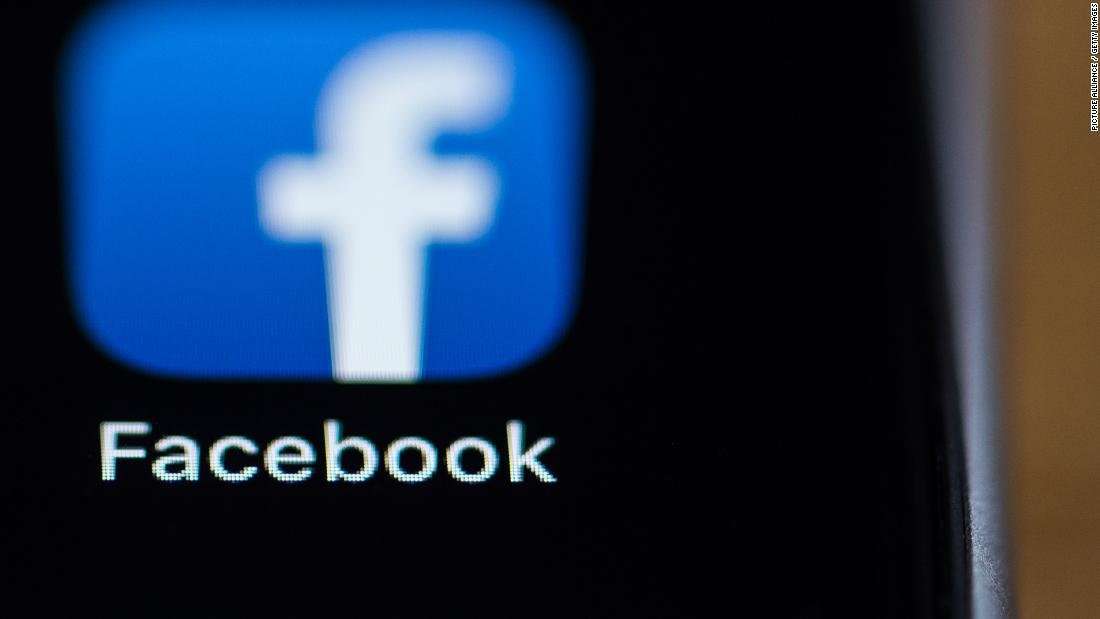(CNN) Facebook's policies for censoring hate speech have again come under fire after the social media giant labeled a passage from the Declaration of Independence as hate speech.
Facebook apologized to a Texas newspaper on Tuesday for deleting its post that included the passage.
The Liberty County Vindicator had been posting excerpts of the Declaration of Independence daily leading up to July 4th. The first nine posts were published without a problem. The 10th post, which included paragraphs 27 through 31 of the Declaration of Independence, was deleted by Facebook.
According to Casey Stinnett, the Vindicator's managing editor, the paper received a notice from Facebook that said the post "goes against our standards on hate speech."
After realizing its mistake, Facebook restored the post. In its apology email to the newspaper, Stinnett said, Facebook wrote , "It looks like we made a mistake and removed something you posted on Facebook that didn't go against our Community Standards. We want to apologize and let you know that we've restored your content and removed any blocks on your account related to this incorrect action."
In a statement after the incident Stinnett expressed his belief that the post was considered offensive and taken down because it included the phrase "Indian savages."
"While The Vindicator cannot be certain exactly what triggered Facebook's filtering program, the editor suspects it was most likely the phrase 'Indian savages,'" Stinnett said in the statement. "Perhaps had Thomas Jefferson written it as 'Native Americans at a challenging stage of cultural development' that would have been better."
He blamed the incident on an "automated action."
"The removal of the post was an automated action," Stinnett wrote. "If any human being working at Facebook were to review it, no doubt the post would be allowed."
A Facebook spokesperson told CNN that "the post was removed by mistake and restored as soon as we looked into it. We process millions of reports each week, and sometimes we get things wrong."
The spokesperson added that the mistake was due to not recognizing the passage was from the Declaration of Independence.
Facebook has come under criticism for not being transparent enough about how it decides what is or isn't banned. And it has at times appeared inconsistent in the applications of its own rules.
Most recently, Facebook fought accusations that it censored conservative personalities like Diamond and Silk in the United States. Human rights groups have complained about its handling of hate-filled posts linked to violence in countries like Myanmar.
Facebook has made efforts to share how it handles such issues. Richard Allen, a Facebook vice president, outlined the company's policies on defining, addressing and contextualizing hate speech in a news release last summer. "We're committed to removing hate speech any time we become aware of it," Allen wrote.
He noted that the process is not perfect. "But it's clear we're not perfect when it comes to enforcing our policy. Often there are close calls -- and too often we get it wrong," Allen wrote. "Our mistakes have caused a great deal of concern in a number of communities, including among groups who feel we act -- or fail to act -- out of bias."
He also addressed the gaps in technology:
"We are, for example, experimenting with ways to filter the most obviously toxic language in comments so they are hidden from posts. But while we're continuing to invest in these promising advances, we're a long way from being able to rely on machine learning and AI to handle the complexity involved in assessing hate speech."
Monika Bickert, also a vice president at Facebook, addressed the issue of how Facebook decides what to allow on its platform in an April news release
"We know we need to do more. That's why, over the coming year, we are going to build out the ability for people to appeal our decisions," Bickert said.
Despite Facebook's effort to improve its policing, Stinnett said he had found it difficult to rectify the paper's own issue.
"It does not appear the folks at Facebook want anyone contacting them. Or, at least, they do not make it easy," Stinnett wrote in his statement.

NSNick on July 6th, 2018 at 07:15 UTC »
The real mistake here was not whitelisting a bunch of historical documents.
akjalen on July 6th, 2018 at 07:13 UTC »
just to clarify: i am native. i instantly thought “hey it’s probably the ‘merciless indian savages’ line.” when i saw the title.
i find it funny that i was right because i have a shirt with that quoted on it.
mrmcdude on July 6th, 2018 at 04:37 UTC »
and they thought the Indians were savage